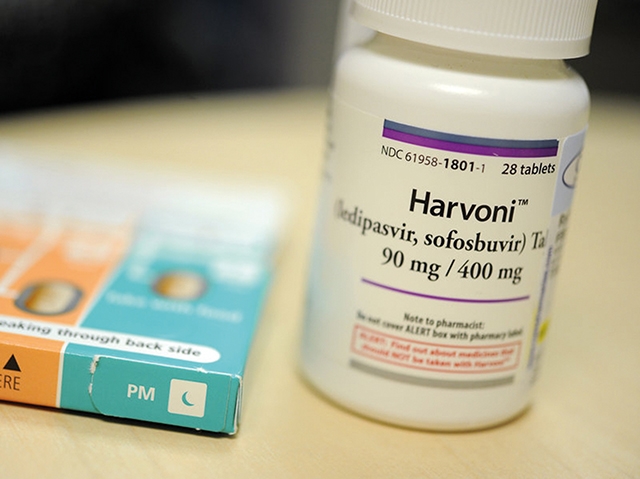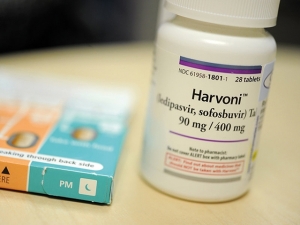State Audit Office of Georgia: GEL 561 mln Worth of Hep C Meds Expired
The State Audit Office (SAO) of Georgia released a report last week which reads that GEL 560,645,083 ($194,331,050) of Hepatitis C treatment medications have expired in Georgia.
The report reads that the expired medications were reflected on various material accounts of the Social Service Agency of the Ministry of Health of Georgia, while the central office of the ministry registered another medicine of the same purpose, worth GEL 121,285 ($42,039), which expired.
The health initiative ‘Georgia without Hepatitis C’ was launched nationwide in April 2015, when the Government of Georgia and American biotechnology company Gilead signed a memorandum of understanding. The project helps to reduce and prevent cases of Hepatitis C in Georgia with the main goal of stopping the disease from spreading. The treatment is free of charge for all citizens of Georgia.
SAO noted the abovementioned expired medicines included modern Hepatitis C treatment medicines received free of charge from a US manufacturer: Harvoni, Sovaldi, Zepatier and Interferon.
The audit office stated that according to the Social Service Agency, the main reason for the expiration of the medication was that since July 2017, the number of beneficiaries has declined sharply. Also, at the initial stage of program launch in 2015, the main treatment drug was Sofosbuvir (Sovaldi), which was prescribed in combination with other medications (Interferon and Ribavirin), but in February 2016, the drug was replaced with a new generation of medicines - Harvon, which changed treatment regimes and dramatically reduced the use of Sofosbuvir, Interferon and Ribavirin. Further, the agency explains that there are cases of sudden termination of treatment, including the death of patients, which resulted in the accumulation of unused medicines.
Opposition parties criticized the ministry, saying an investigation should be launched into the fact.
Roman Gotsiridze, member of the United National Movement (UNM), says that it is a “crime” to let such expensive medicines go to watse.
“This happened because of negligence, lack of management and corruption at the expense of human health. The Hepatitis C program was a unique gift from our friend state the US, which provided a grant and is currently spending billions of dollars [on it]. No developed country could afford this program because it is an extremely expensive treatment method,” Gotsiridze claims. The MP called for the proper investigation of the fact.
Amiran Gamkrelidze, Director of the National Center for Disease Control (NCDC) and Public Health, commented on the issue, saying there must always be a certain amount of medicines in the strategic stock so that they can be used when needed.
"We are treating every month from 1000 to 1200 patients and for this reason we should always have a certain amount in stock because we are trying to involve more people in this program," Gamkrelidze explained, noting that the expired medicines worth GEL 560,645,083 were not bought from the state budget.
"This GEL 560 million was not the budget money, it was a donation, and the cost for the medicines was higher in 2013, 2014 and 2015. Today, the prices are lower,” he said.
Gamkrelidze noted that the project has been highly effective, seeing 65,000 people benefiting from the program, of which 58,000 will no longer develop liver cancer, meaning those people will live 15 to 20 years longer than if they had developed the disease.
Former Health Committee Chairman of Parliament, Akaki Zoidze, who quit his mandate in early December, said that no-one questions the Hepatitis C program except Georgians. Zoidze took to Facebook to address the issue, saying it is unacceptable to politicize everything.
“No-one on Earth doubts the success of the Hepatitis C program, except Georgians! And it happens when the whole world is watching very closely this truly unique process of elimination of this terrible disease, and our country is a pioneer in it!” he said.
The post reads that only Gilead has the right to be concerned about the expiration of the medicines, and adds that the organization knows the importance of this project and a 1-2% loss of medicines through expiration is expected.
“What is the biggest danger for the future of the program? Further politicizing the issue, and most importantly, the passivity of thousands of citizens who know they have the virus but do not seek in-depth diagnostics and treatment, even though today it is completely free for them," Zoidze wrote on his Facebook page.
By Tea Mariamidze
Image source: npr.org











